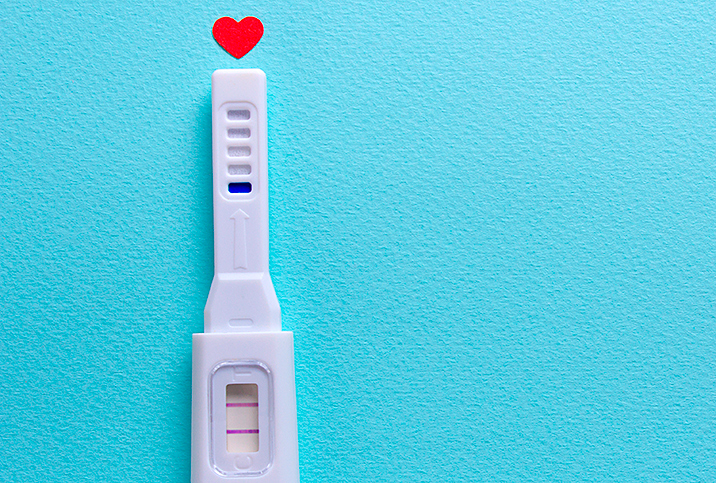A Dating Guide for People With Lupus

Joining the quest for romantic fulfillment is daunting at the best of times. When you live with a condition that interrupts daily functions, it's an exhausting venture.
Lupus, an autoimmune condition, causes the body to attack its own tissues and organs. It affects many different systems in the body, including the skin, kidneys, blood cells, joints, brain, heart and lungs.
An estimated 1.5 million Americans, and 5 million people around the globe, have a form of lupus, according to the Lupus Foundation of America.
Most commonly recognized by a butterfly rash on the face, lupus is a disabling condition that can mutate dating into a crushing pursuit instead of a fun adventure.
What is lupus?
"I was very young when I was first diagnosed," said Kate, who lives in Sofia, Bulgaria, and preferred to use only her first name. "I had to stop playing sports and basically spent all my vacations in different hospitals while my friends and classmates were having fun."
Although lupus most commonly affects women of childbearing age, men, children and teenagers develop it as well. It is also most common in Black, Hispanic and Asian American people. No two cases are exactly alike: Symptoms may develop slowly or appear suddenly, be mild or severe, and stay temporarily or become permanent.
Symptoms include fatigue, fever, a butterfly-shaped rash on the face, skin lesions that appear or worsen with sun exposure, and joint pain, stiffness and swelling. Studies indicate that lupus is caused by a combination of genetic and environmental factors. Potential triggers include medications such as antibiotics, infections and exposure to sunlight.
Although it varies dramatically between patients, the impact on the ability to function in day-to-day life is unquestionable.
"Growing up without being able to socialize with my peers affected the way I communicate with people as an adult," Kate said. "It caused me to be more introverted and even agoraphobic."
Impact on self-esteem
"In the early stages of my disease, I used to get swollen ankles and knees," Kate explained. "I gained some weight because of the medications, too, which made me insecure. As a result, I lowered my standards, believing I'm not good enough."
Living with a chronic condition affects everything, from the moment you wake up in the morning to the quality of your sleep at night. It has the power to crush self-esteem as well.
"There is shame when a health condition is ongoing," said Charlotte Fox Weber, a psychotherapist, a member of the British Association for Counselling and Psychotherapy, and the author of "What We Want: A Journey Through Twelve of Our Deepest Desires."
"False hope from others [and] the pressure to find solutions or make the problem go away can add to unfortunate shame for not being able to fix an issue," she added.
Resisting the stigma associated with chronic illness is a key part of reinvigorating your self-esteem and accepting lupus as a part of you, not the sum of who you are.
"Realize that no one is perfect physically or personality-wise," advised Frances Kelleher, a dating coach based in Ireland. "Do things that you are good at and hang out with people that make you feel good. Praise yourself for all that you do and are. These things build self-esteem."
Navigating the effects of dating
Although we're seeing many aspects of society that were once confined to darkness now being destigmatized, there is a long way to go before ignorance is expelled from the dating scene.
"Sadly, most of [my dates] just don't understand the illness or just don't care," Kate said. "They expect me to function like any other person and don't get why I can't. The worst experience was when my ex-fiancé called me boring, hard to love and 'always sick.'"
Living with a chronic condition is already being subjected to "othering" without insensitive people driving that feeling deeper into our hearts. Knowing when it's the right time to reenter the dating world is crucial.
Even the most compassionate people are still influenced by a society that prizes physical beauty and health above all else, so protecting your own emotional well-being must be the first priority.
'I share openly and see if the person is interested in knowing more or not.'
For some people, opening up slowly feels best, but for others, sharing immediately is the best course of action, as Kate explained.
"I don't hide my condition. I share openly and see if the person is interested in knowing more or not," she said. "Some of them prefer to look it up online and share their thoughts later. Some of them just ignore it completely. I'm always open about it and don't feel ashamed to share my experience."
People open to dating those with a chronic illness should be aware that it may take time for a partner to open up.
"Be aware that people have health issues they don't talk about; assume that there's shame, even if there shouldn't be," Weber advised. "The world is improving in these ways, but there's still so much that makes life difficult and isolating. Kindness is everything."
Changing approach
"Being a teenager with lupus is totally different than being an adult with the same diagnosis," Kate said. "The mindset changes as you grow up and you become more aware of your own self-worth. I try to surround myself with people who don't judge me and accept me for who I am."
Shifting focus and channeling love inward is transformative. Specifically seeking a romantic partnership may make it even harder to find and, therefore, easier to accept a lesser companion. Focusing on yourself first can help you invite people into your life who also prioritize self-love and compassion.
"Don't count on anyone else but yourself," Kate added. "Once you realize how strong you are alone, you'll find out how special and amazing each and every one of you are. Then you'll be able to let yourself be with the person you really deserve and not just compromise so you don't feel lonely."


















